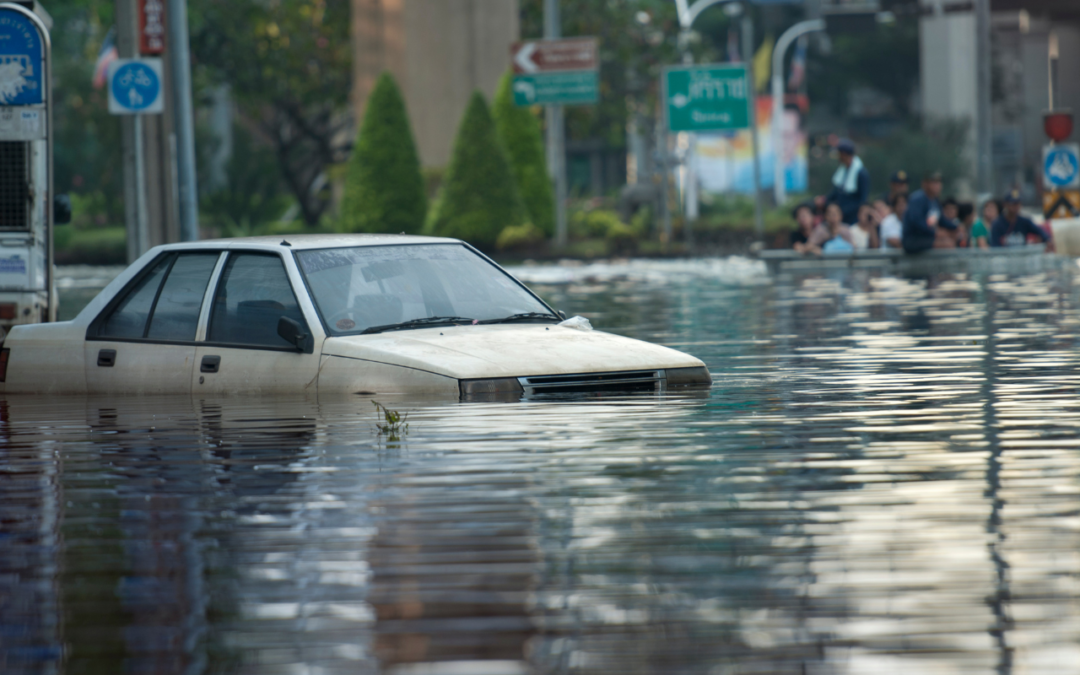This post has nothing to do with abdominal therapy. I just wanted to get some thoughts down after witnessing so many people from various states and backgrounds come together after the devastation caused by the flooding in NC.
One month after the flooding and destruction caused by Hurricane Helene I had a chat with Ellie, a midwife from Asheville, NC. She captured so beautifully the essence of what I wanted to hold onto after my husband and I returned from a short stint of disaster relief in Mitchell County, NC.
This is what she said: ”The devastation is immense. Asheville is still without potable water, and we went three weeks with no water at all until they released untreated water (although it is carefully monitored for bacteria) into the system so people could flush toilets, and boil for other uses. The entire reservoir of pristine mountain water was churned up and all the water system infrastructure was destroyed. We had no power for almost three weeks as well, no internet, no phone for 5 days, Lives were lost – whole families trapped by floodwaters, homes were washed away, and businesses were destroyed. The bright silver lining is the wellspring of goodness springing to life in the hearts of everyone. Each brought what they could -chainsaws to clear out the tangle of trees, restaurants used up all their food cooking meals for free, neighbors share food and had weakly potlucks, people cleaning toxic mud off of whatever art that could be salvaged in the River Arts District near my home. I have witnessed a living demonstration of Love thy Neighbor. ….I have seen people coming from all over the country to help. Veterans from all over the country have mobilized and are taking charge of clearing out the massive amount of mud and trees. My faith in humanity is restored as well. Even with an election coming up, with all the Trump and Kamala signs washed away, these good people rose above politics and did what they could to help one another.”
Ellie is still very busy going to births, people are donating breastmilk, food, and baby supplies. West Virginia coal miners rebuilt a 2.7 mile stretch of highway on their own dime to reconnect communities. What took them under a week to do would have taken the agencies months to repair. Amish came from PA to build tiny homes for those who lost everything. Mark and I met a group of hilarious men who drove from Louisiana with home cooked Jambalaya to feed the people of Mitchell County, NC. We had the pleasure of working with Danny the electrician, (known as the big man with a beard) from SC who put his life and business on hold for over a month to run a distribution center, and serve hot meals daily with many other awesome volunteers. Danny was also involved with a fundraiser to raise money to build insulated tiny homes for those who’s homes washed away during the flood. He stressed the importance of calling the shelters sheds, not tiny homes, otherwise the government wouldn’t allow them due to lack of permits. So, because of regulation and red tape, the county officials would rather have people living in tents with no protection from the winter elements or bears.
We also teamed up with two lovely people, Gary and Jennifer from SC. They came representing their nondenominational church. We worked side-by-side with them shoveling out toxic muck from a home on the Toe River and salvaging what we could of their belongings, most of which was unsalvageable. Everything was caked with muck (mud mixed with sewage, mold, and chemicals). Samaritans Purse had at least 30 volunteers in other rooms tearing out drywall and rotted wood. The muck in some areas along the Toe River were toxic enough to deteriorate boots. Marc and I didn’t have proper gloves and when the toxic water seeped through our fingertips itched with a burning sensation. We immediately cleaned our hands and found rubber gloves to wear under our work gloves. E-coli infections, Legionnaires’ disease and Cryptosporidiosis are real risks people live with everyday in the flood area even after the muck dries and turns to dust.
So many Americans, despite these risks and loss of income, showed up to help out total strangers. I heard more than once how it was mainly everyday people coming together to help each other, not the government. No one asked who they voted for; they saw people in need and helped out regardless of political views. It seems silly to even bring that up, but after returning home and seeing people spew hate and judgement from behind their computer in the comfort of their home it seems necessary to mention. It was odd to come home from WNC after the election and hear people make incorrect assumptions and demonizing friends, family, and strangers just because of who they voted for. No one sincerely tries to understand why someone thinks differently than themselves. They assume the worst based on what they’re fed through their preferred news source or the AI fed algorithm. When people stop trying to truly understand each other they stop exploring possibilities, stop evolving intellectually, all of which leads to a less intelligent population waring over made up BS. They isolate themselves from the people that may be their lifeline in the future. Don’t believe everything you hear. Don’t expect the government to save you. Be prepared.
Other things I learned from my experience was that it’s a good idea to learn real-life valuable skills. Right after a disaster knowing how to use a chainsaw is extremely valuable, as is knowing how to build and fix stuff. Mark and I learned new skills just by volunteering. Take advantage of that, it’s free training and a good opportunity to meet amazing people outside of your bubble. Having the proper PPE’s (muck boots, N95 masks, waterproof work gloves, disposable suits, steel toed boots, goggles) is super important. I really wish I had disposable suits to protect my clothes and eye goggles during a muck-out when muck splashed in my eye! Starlink was a lifeline for many without cell service. Stay healthy and strong. Mucking-out and moving logs is hard work. Of course, stock up on non-perishables, learn to forage, hunt, and build a fire. And finally, get to know your neighbor and invest in your community because when the shit hits the fan most likely it’ll be everyday folks helping each other out before the government is able to step in.

